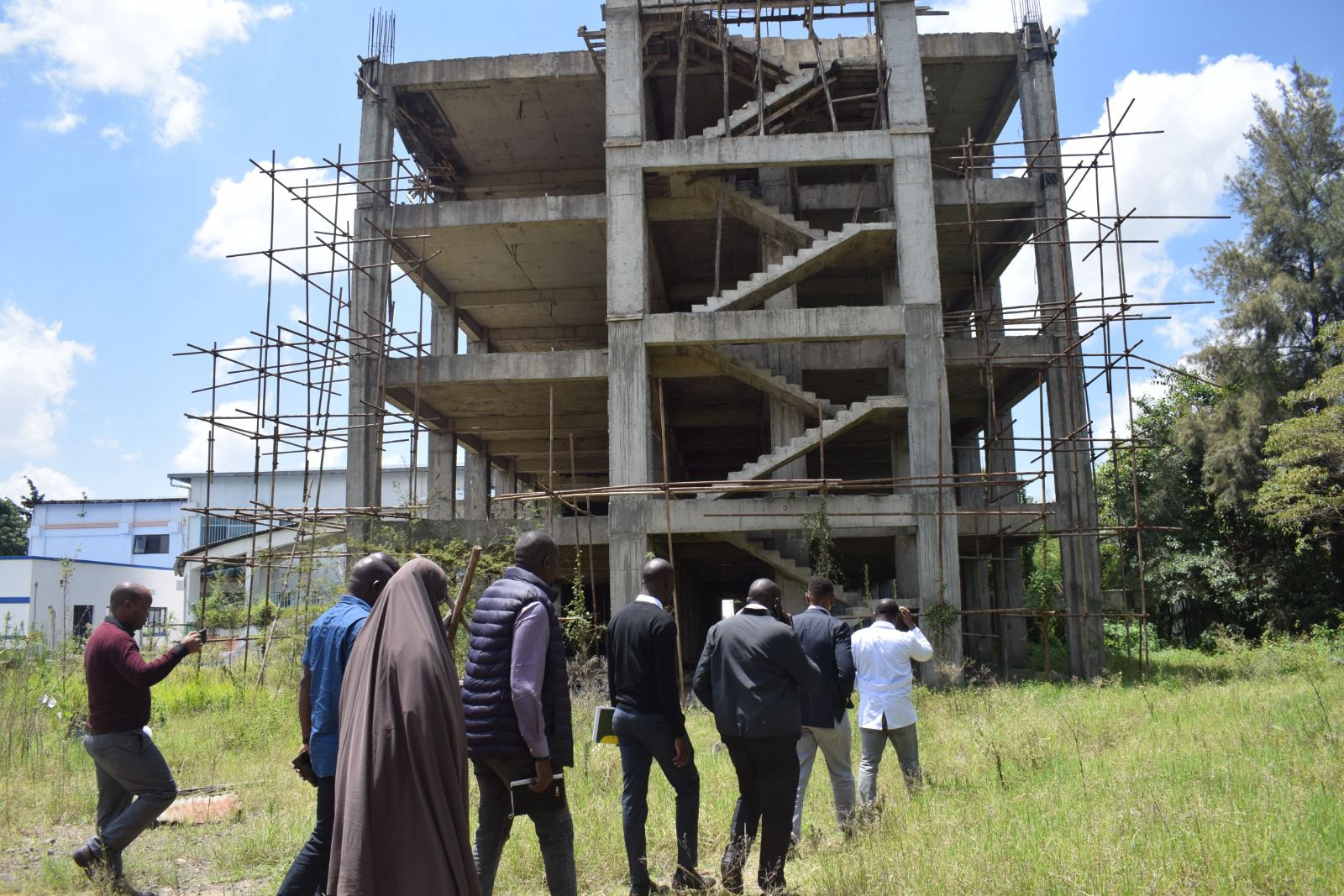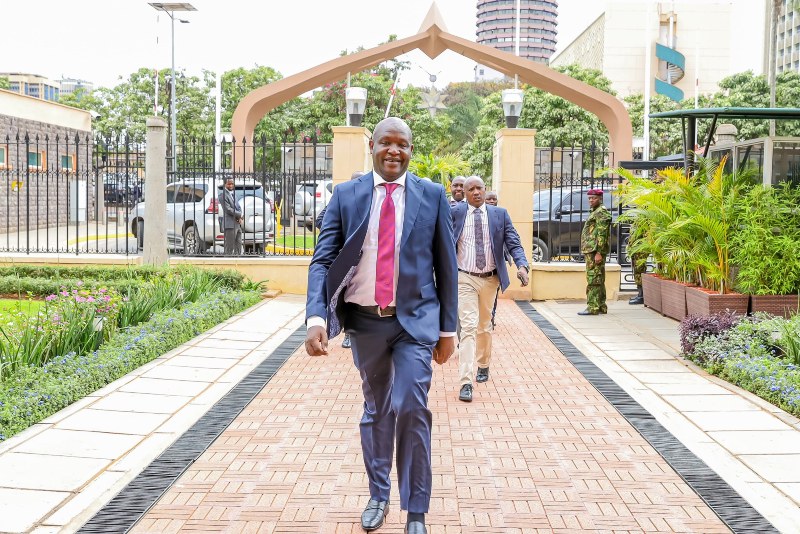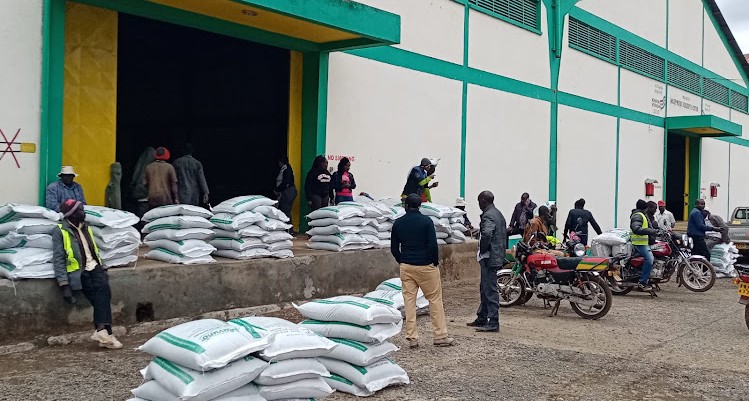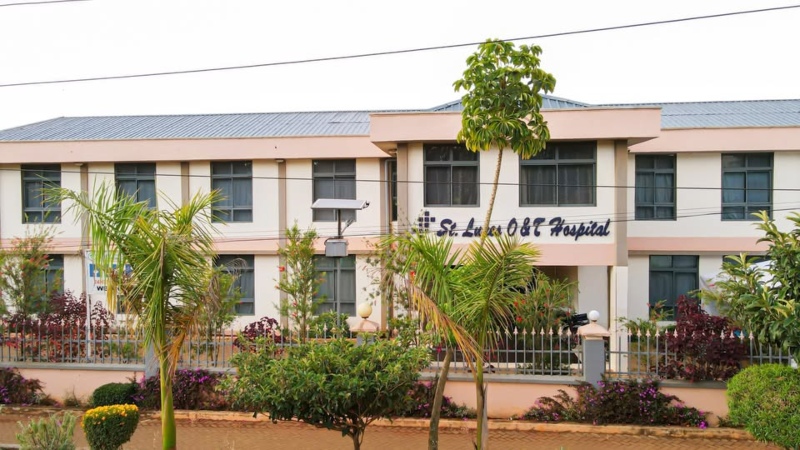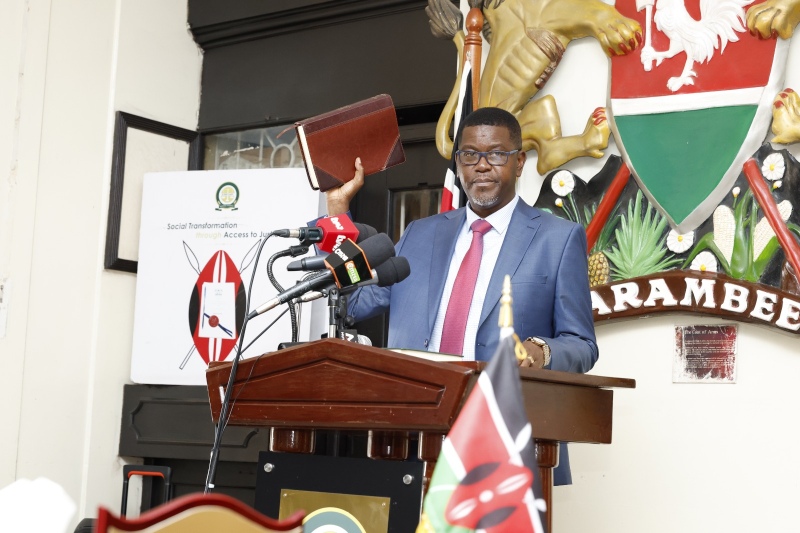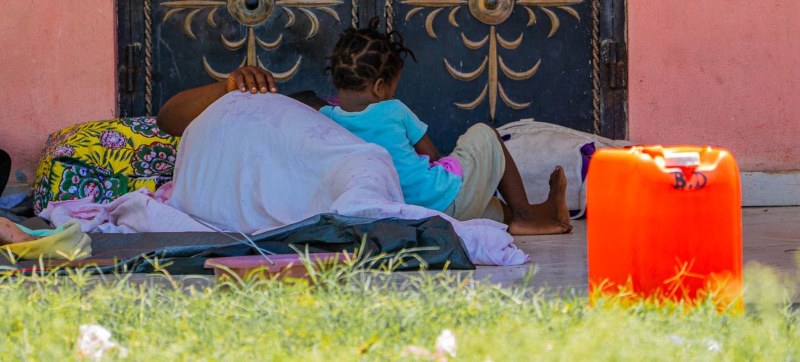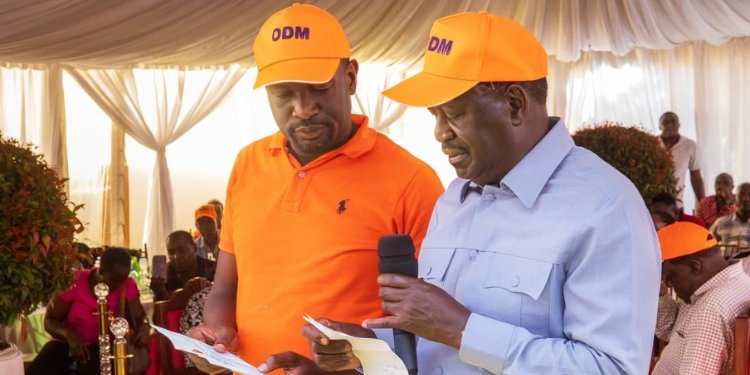Trump slaps 10% tariffs on Kenyan goods in new "economic independence" blitz
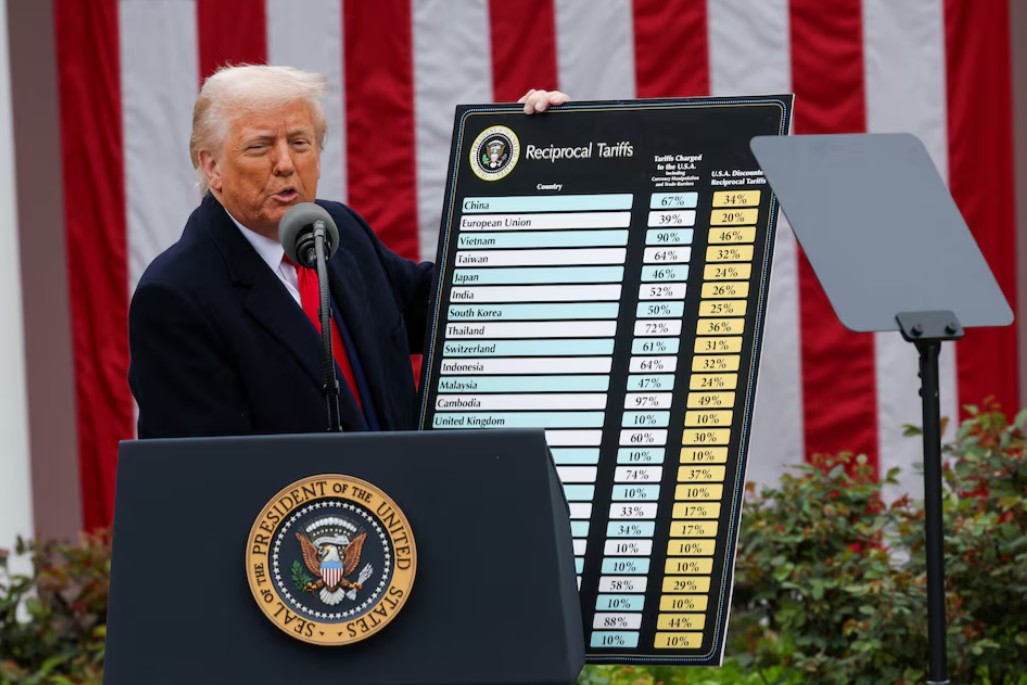
The move was part of a dramatic trade policy overhaul he dubbed "Liberation Day," announced in a fiery address from the White House Rose Garden on Wednesday.
U.S. President Donald Trump has imposed a sweeping 10% tariff on all goods imported from Kenya, citing the need to level the playing field and counter what he called "cheating" in global trade.
The move was part of a dramatic trade policy overhaul he dubbed "Liberation Day," announced in a fiery address from the White House Rose Garden on Wednesday.
More To Read
- How Africa should reimagine its trade future upon AGOA’s expiry in September - experts
- US announces withdrawal from UNESCO again, citing "misalignment with national interests"
- Trump’s 30 per cent tariff on South Africa not backed by trade data — Ramaphosa
- Why is Trump meeting five African presidents this week?
- US threatens South Africa with 30 per cent tariff on all exports amid BRICS alignment concerns
- Trump bans travel to US by nationals from 12 countries including Somalia, Sudan and Congo
"This is our declaration of economic independence," Trump proclaimed, adding that the new measures will help rebuild the American economy and "prevent cheating" by mirroring the tariffs imposed on U.S. goods abroad.
Kenya was among the countries directly named, with Trump highlighting the East African nation's existing 10% tariff on American imports.
"We will match that—10% across the board," he said. "We're slowly bringing America back to greatness."
The president also announced a 25% tariff on all foreign-manufactured automobiles, effective midnight Thursday, in what he framed as a bold bid to revive American industry and reduce reliance on imports.
The announcement came just hours after the release of the 2025 National Trade Estimate report by the U.S. government, which painted a bleak picture of Kenya's trade environment.
The report cited high tariffs, opaque non-tariff barriers, and bureaucratic inefficiencies as persistent obstacles for American businesses.
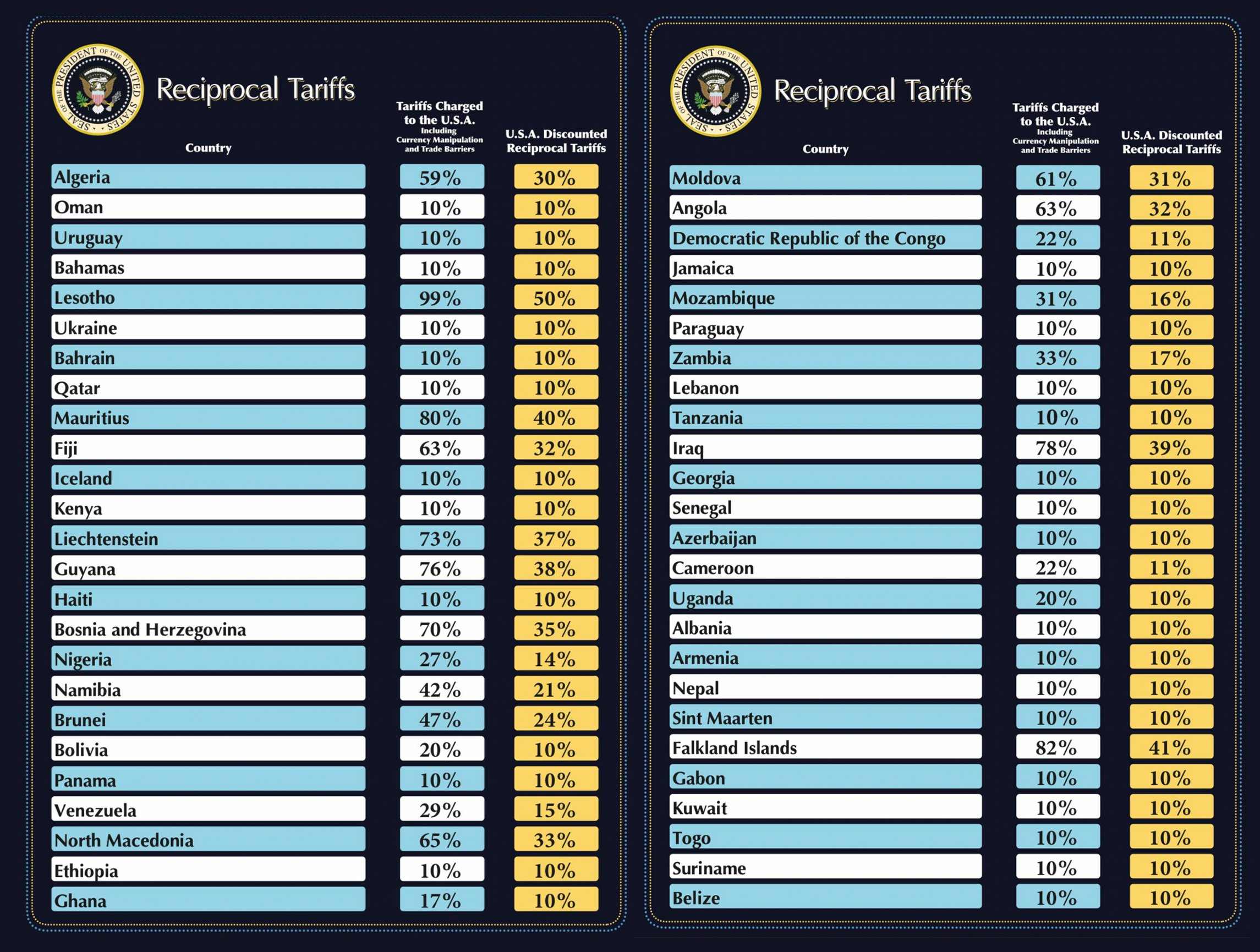
Kenya's average import tax stands at 13.8%, with agricultural products facing even steeper rates—up to 60% for milk and 100% for sugar. The East African Community (EAC) Common External Tariff framework adds complexity with multiple duty layers, particularly affecting U.S. products like secondhand clothing and clean energy technology.
Customs systems
The report also criticised Kenya's customs system for frequent delays and inconsistent application of rules.
Despite the rollout of a single-window system meant to ease trade logistics, many importers report that it's often ignored in practice.
Kenya's pre-shipment verification system, which requires U.S. goods to undergo conformity checks, has been flagged for creating unnecessary delays and extra costs.
Only one U.S.-based company is authorised to conduct these inspections, further tightening the bottleneck.
Other Topics To Read
In the digital space, Kenya's 3% tax on foreign firms with significant economic presence—widely seen as targeting Big Tech—was flagged as another friction point.
While foreign ownership restrictions have been eased in some sectors, key industries like mining and security remain tightly regulated. Add to that corruption in procurement and lengthy judicial processes, and the investment climate looks even murkier.
The report also spotlighted Kenya's struggles with counterfeit goods and weak enforcement of intellectual property rights.
Despite having a legal framework in place, piracy and counterfeit products remain rampant, deterring U.S. firms from entering the market.
This tough stance signals a shift from previous diplomacy-heavy trade engagements with Kenya, including talks around a Free Trade Agreement (FTA) during his first term.
The tariffs now signal a more unilateral, transactional approach—a wake-up call to Kenya and other trade partners.
For Nairobi, the challenge will be walking a tightrope between protecting local industry and navigating a shifting global trade landscape where even traditional allies aren't pulling punches.
Top Stories Today
